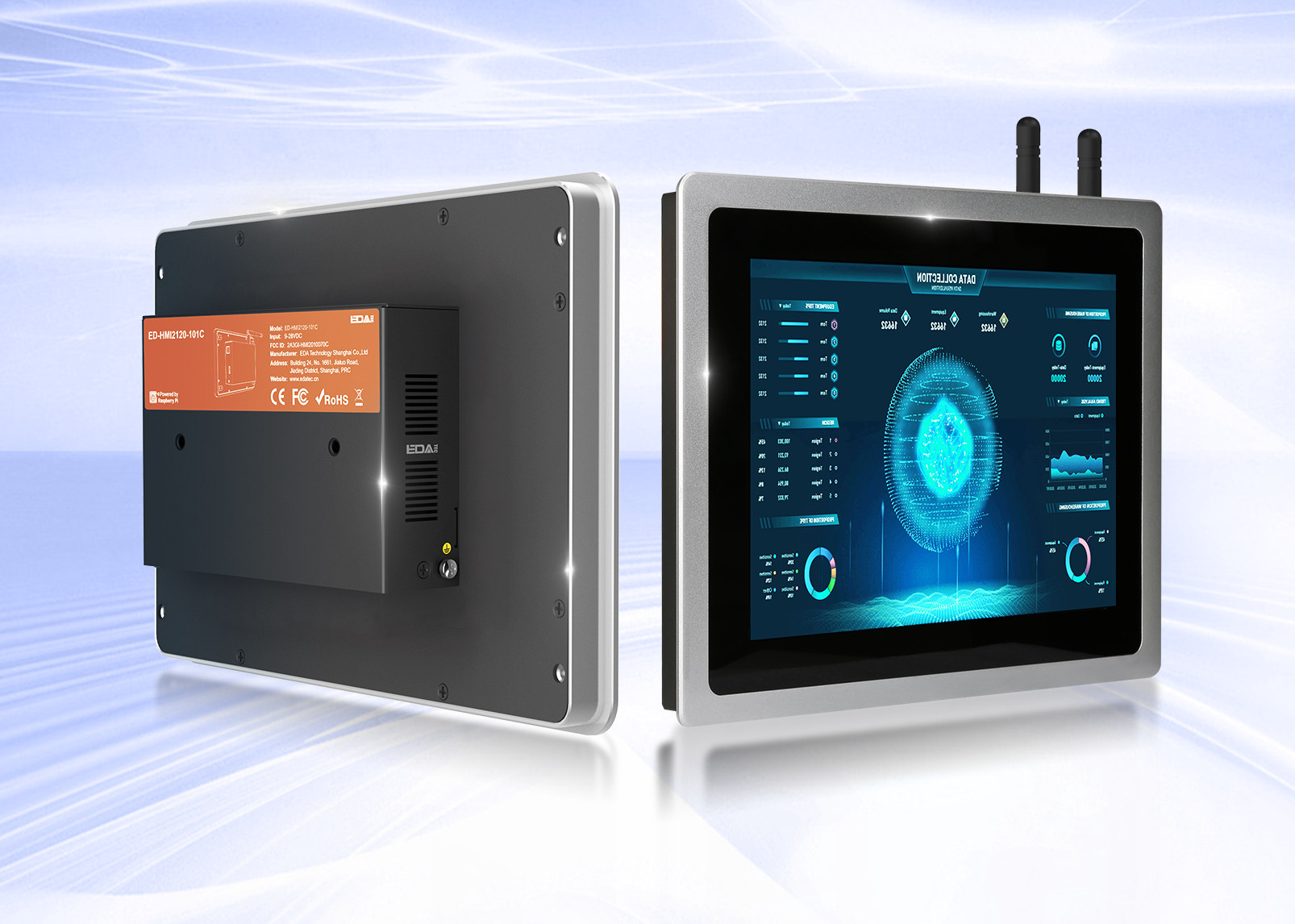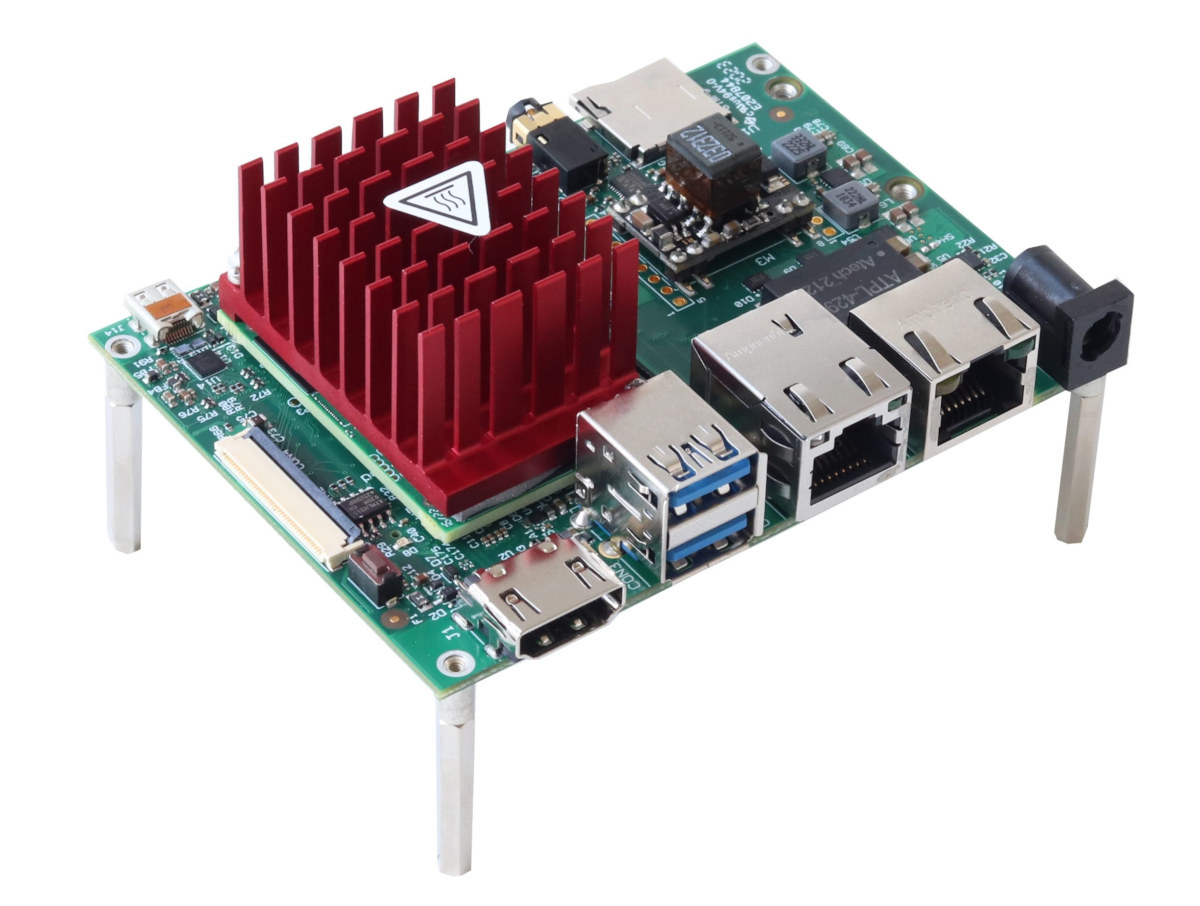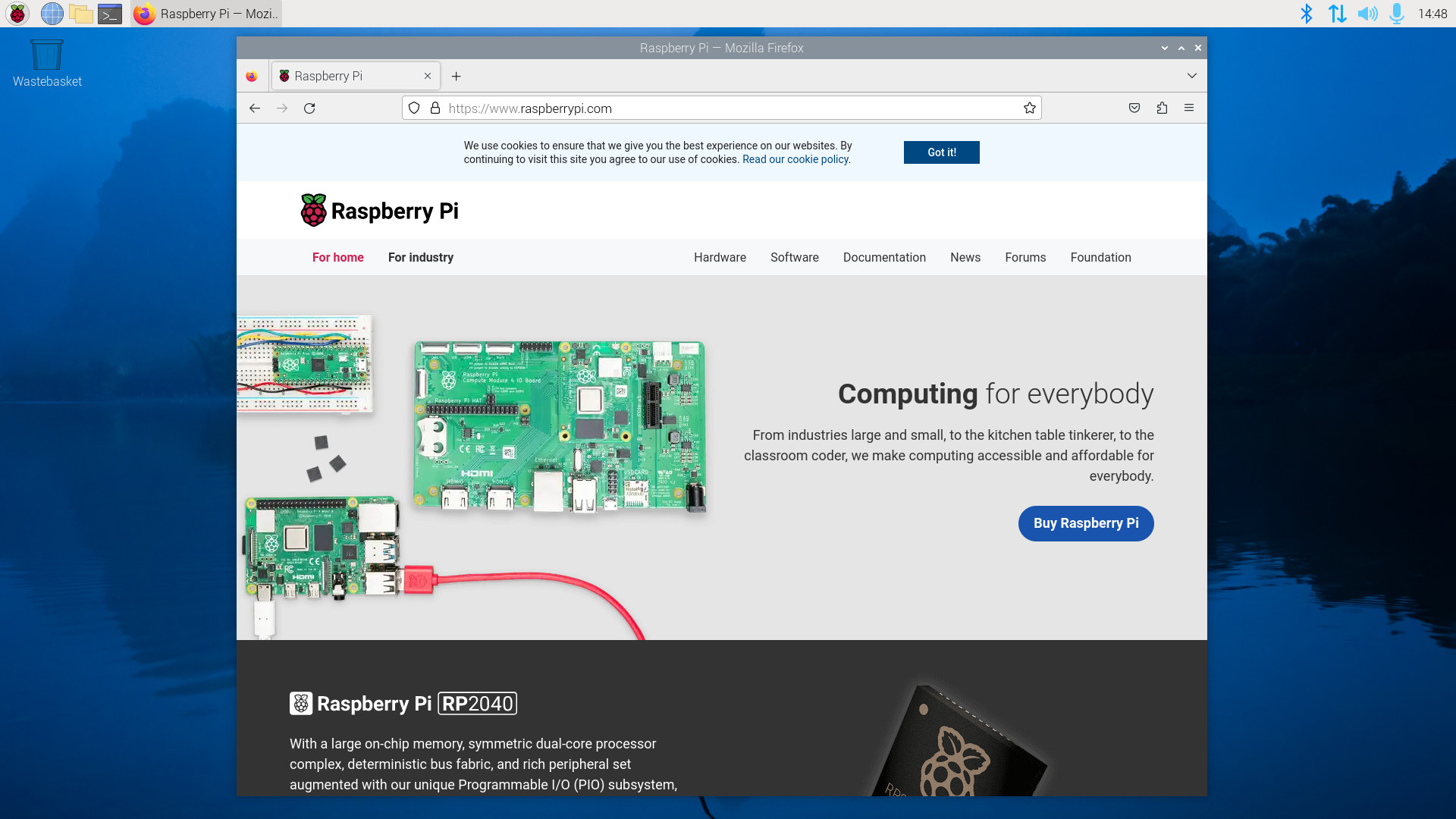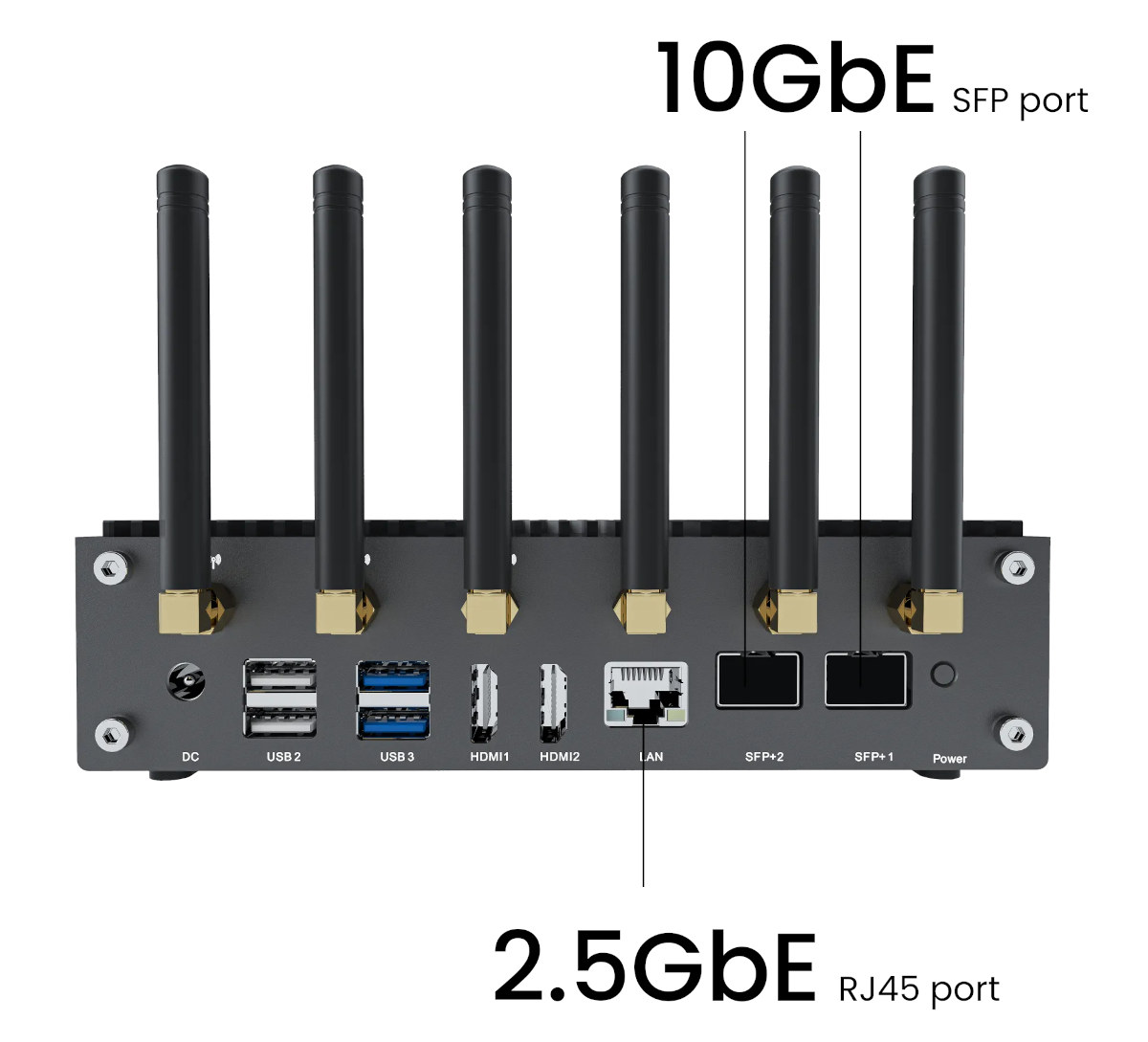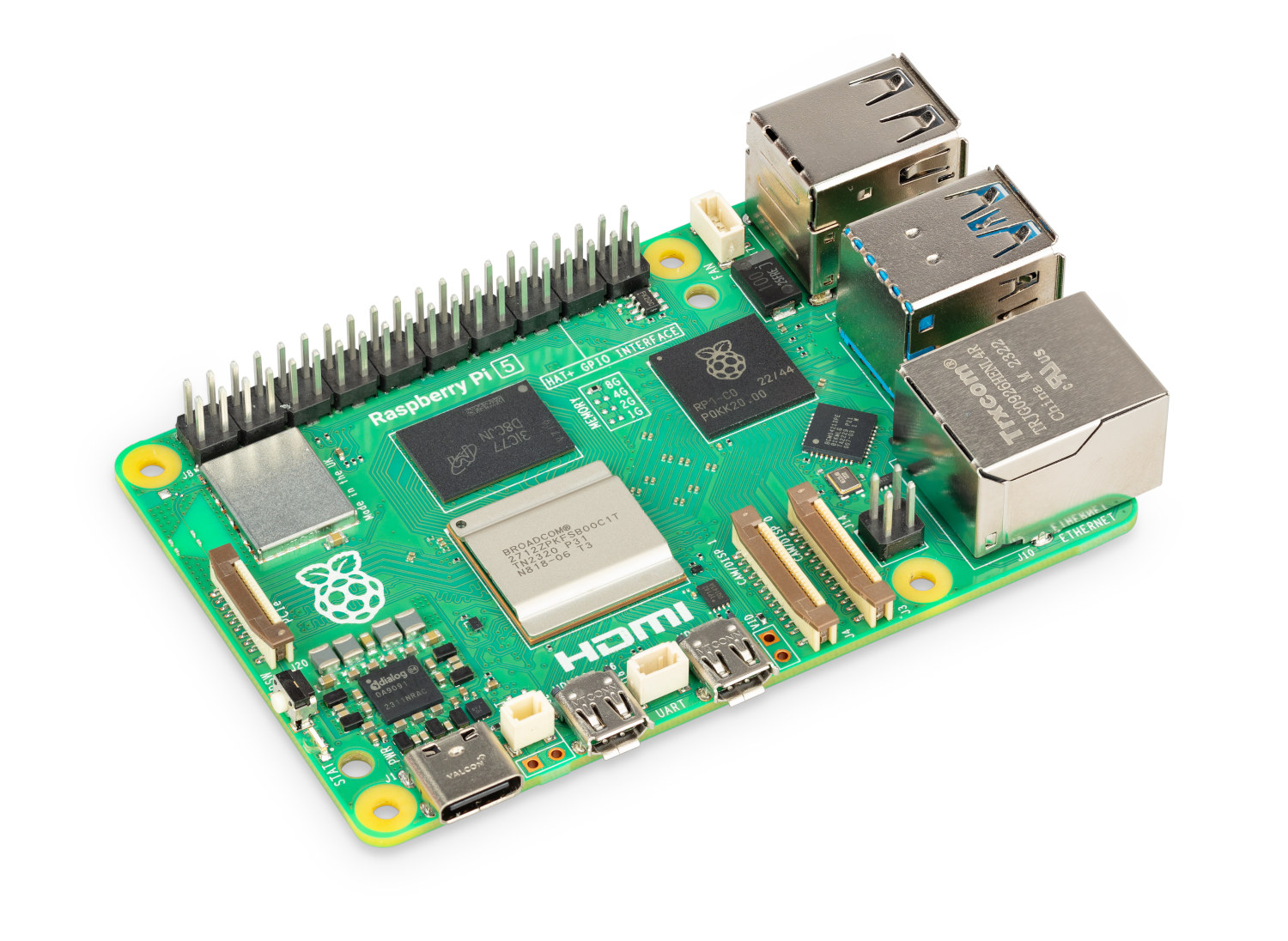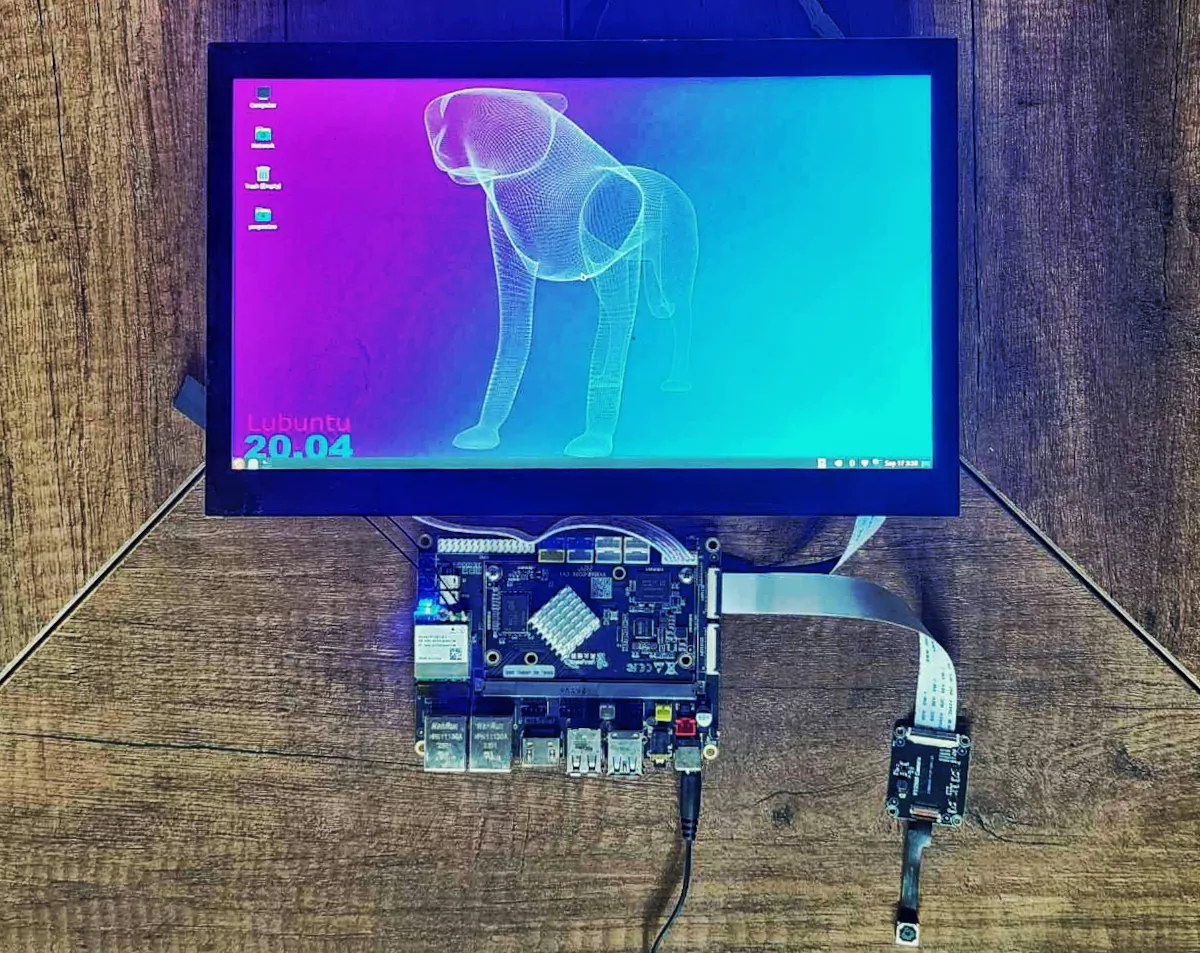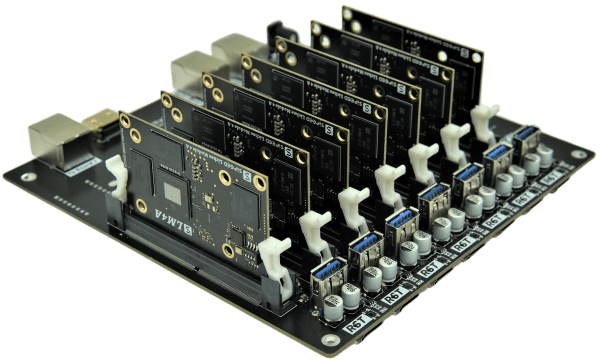EDATEC ED-HMI2120-101C is a Raspberry Pi CM4-based industrial panel PC with a 10.1-inch capacitive touchscreen display with plenty of interfaces to cater to a wide range of use cases from robotics to energy management and industrial automation. The panel PC builds upon the ED-HMI2020-101C introduced just a few months ago, but adds a range of features with dual Ethernet, RS485 and RS232 interfaces, and optional supports for an M.2 NVMe SSD and 4G LTE cellular connectivity. The device now supports an even wider DC input range from 9V to 36V and provides three 12V DC outputs to power external hardware such as an additional LCD. ED-HMI2120-101C specifications (with highlights in bold and strikethrough showing the differences against the earlier ED-HMI2020-101C model): System-on-Module (SoM) – Raspberry Pi CM4 SoC – Broadcom BCM2711 CPU – Quad-core Cortex-A72 processor @ 1.5GHz GPU – VideoCore VI conformant with OpenGL ES 3.1 & Vulkan 1.2 […]
Generative AI on NVIDIA Jetson Orin, Jetpack 6 SDK to support multiple OSes
NVIDIA has had several announcements at ROSCon 2023 related to robotics & embedded with highlights including generative AI on the NVIDIA Jetson Orin module and the Jetpack 6 SDK will be released next month (November 2023) with supports for Ubuntu as usual, but also other operating systems and platforms such as Debian, Yocto, Wind River, Redhawk RTOS, and Balena. Generative AI on NVIDIA Jetson Orin There’s been a lot of hype in the last year about generative AI thanks to services such as ChatGPT, Google Bard, or Microsoft Bing Chat. But those rely on closed-source software that runs on powerful servers in the cloud. As we noted in our article about the “AI in a box” offline LLM solution there are some open-source projects such as Whisper speech-to-text model and Llama2 language models that could be run on embedded hardware at the edge, but as noted by some readers platforms […]
Hummingboard 8P Edge AI SBC combines NXP i.MX 8M Plus SoC with Hailo-8 AI accelerator
Hummingboard 8P Edge AI Pico-ITX SBC combines an NXP i.MX 8M Plus processor – itself with a 2.3 TOPS NPU – with the 26 TOPS Hailo-8 AI accelerator for edge AI applications such as smart cameras and automated optical inspection. The compact board comes with up to 8GB RAM, up to 128GB eMMC flash, two gigabit Ethernet ports including one with PoE, WiFi 5, a MIPI camera interface, HDMI and micro HDMI ports, two USB 3.0 ports, and more. Hummingboard 8P Edge AI specifications: SoC – NXP i.MX 8M Plus quad-core Cortex-A53 @ up to 1.8 GHz with Arm Cortex-M7 @ up to 800 MHz, Vivante GC7000UL 3D GPU, Vivante GC520L 2D GPU, 2.3 TOPS NPU System Memory – Up to 8GB LPDDR4 Storage – Up to 128GB eMMC flash, microSD card slot AI accelerator – M.2 Hailo-8 module delivering up to 26 TOPS Video Output – HDMI and Micro […]
Raspberry Pi OS upgraded to Debian 12 “Bookworm”
Raspberry Pi has announced a new release of Raspberry Pi OS based on Debian 12 “Bookworm” upgrading from Debian 11 “Bullseye” which served as the base for the Raspberry Pi operating system since November 2021. As explained in the announcement, not much changes from the user perspective when switching between Debian 11 and Debian 12 with a lot of changes occurring under the hood plus they also worked on some extra features specific to Raspberry Pi OS. Wayland on Raspberry Pi OS The main change is the switch from the legacy X11 window manager to the more modern Wayland system with WayFire compositor that delivers better performance when drawing windows and improved security since it’s not using a server/client implementation. Note that Wayland is only enabled by default on Raspberry Pi 4 and 5 boards, and earlier and less powerful models still rely on X11 as work is going on […]
PALMSHELL NeXT H2 SBC and micro server offers 10GbE for $199 and up
PALMSHELL NeXT H2 is an affordable AMD Ryzen Embedded R1505G-powered micro server, also available as an SBC for developers, that features two 10GbE SFP+ cages and one 2.5GbE RJ45 port, as well as expansion sockets for wireless connectivity. The system supports up to 32GB RAM plus an M.2 NVMe SSD and two SATA drives for storage, offers several wireless connectivity options with WiFi 6, Bluetooth 5.2, and 4G LTE/5G, and is equipped with two 4Kp60-capable HDMI ports, and four USB ports. PALMSHELL NeXT H2 specifications: SoC – AMD Ryzen Embedded R1505G dual-core/quad-thread processor @ 2.4GHz up to 3.3GHz with AMD Radeon Vega 3 graphics; TDP set to 25W System Memory – Optional 8GB or 16GB DDR4 @ 2400 MT/s via 2x SO-DIMM slots Storage Optional 256GB or 512GB NVMe (PCIe 3.0) SSD via M.2 Key-N 2280 socket 2x SATA III connector MicroSD card socket Video Output – 2x HDMI […]
Raspberry Pi 5 SBC launched with 2.4 GHz Broadcom BCM2712 quad-core Cortex-A76 SoC
The long-awaited Raspberry Pi 5 SBC is finally here with a powerful Broadcom BCM2712 quad-core Cortex-A76 processor clocked at 2.4 GHz, 4GB or 8GB memory, and the usual Raspberry Pi Model B form factor. The Raspberry Pi 4 Model B was introduced in June 2019, so it took over four years to get a new model, and the Raspberry Pi 5 should deliver 2 to 4 times the performance, compete directly with Raspberry Pi-shaped Rockchip RK3588S SBCs such as the Radxa Rock 5A or Cool Pi 4 Model B and benefit from a larger community and better software support. Raspberry Pi 5 specifications: SoC – Broadcom BCM2712 CPU – Quad-core Arm Cortex-A76 processor @ 2.4 GHz with crypto extensions, 512KB per-core L2 caches, 2MB shared L3 cache GPU – VideoCore VII GPU @ 800 MHz with support for OpenGL ES 3.1, Vulkan 1.2, 4Kp60 HEVC decoder System Memory – 4GB […]
Review of Youyeetoo Rockchip RK3568 SBC with Lubuntu 20.04 and the RKNPU2 AI SDK
We’ve already reviewed the Rockchip RK3568-power Youyeetoo YY3568 SBC with Android 11 – and listed the specifications and checked out the hardware kit – in the first part of the review. We now had time to switch to Lubuntu 20.04, perform some basic tests, and also have a closer look at the RKNPU2 AI SDK for the built-in 0.8 TOPS AI accelerator found in the Rockchip RK3568 SoC. Installing Ubuntu or Debian on YY3568 SBC The company provides both Debian and Ubuntu images for the YY3568 SBC with different images depending on the boot device (SD card or eMMC flash) and video interface used (DSI, eDP, HDMI). Our YY3568 “Bundle 5” kit comes with an 11.6-inch eDP display so we’ll select the “Ubuntu 20” image with edp in the file name. The RKDevTool program is used to flash Linux images and it’s the same procedure as we used with Android […]
Lichee Cluster 4A mini-ITX RISC-V cluster board launched for $929 and up
As expected, Sipeed has now launched their Lichee Cluster 4A mini-ITX cluster board and box taking up to seven RISC-V modules with prices starting at $929 on Aliexpress. All kits on offer are fitted with seven Sipeed LM4A system-on-modules based on the T-Head TH1520 quad-core RISC-V processor in either 8GB/32GB or 16GB/128GB memory and storage configuration. Lichee Cluster 4A specifications: SoM – 7x Sipeed LM4A modules with Alibaba T-Head TH1520 processor (4x C910 @ 1.85GHz) and a total of either 56 or 112GB LPDDR4X, and 224GB or 869GB eMMC flash Storage – 7x microSD card slots, one per slot Video Output – 1x HDMI port connected to slot 1 Networking 1x Gigabit Ethernet port for the cluster 1x Gigabit Ethernet port for slot 1 only 1x Ethernet for BMC control USB 7x USB 3.0 ports, one per slot 1x USB 2.0 port for BMC Power Supply – 12V DC input […]


